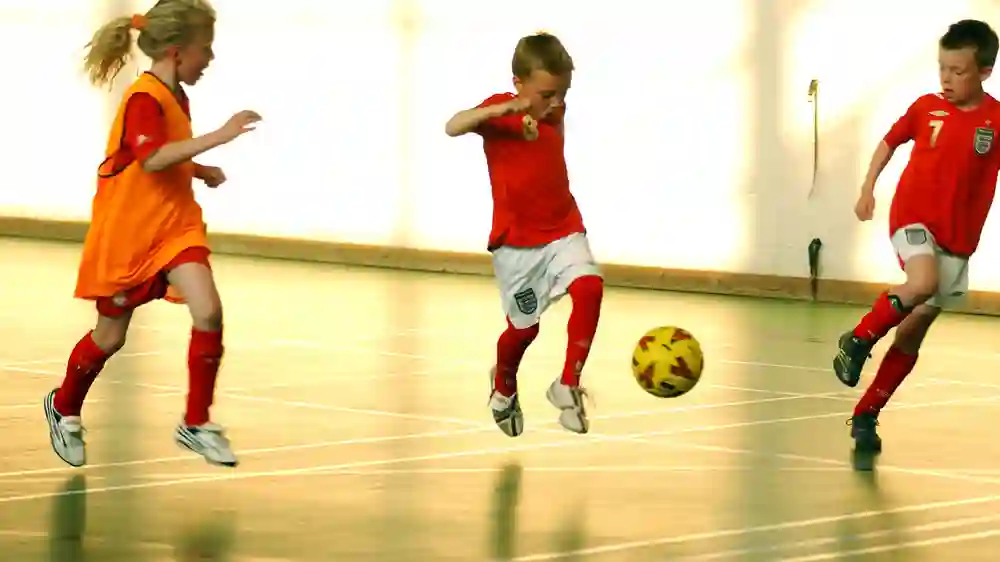Regardless of the sport, every athlete must master some basic skills to play the game. These include passing (throws, kicks and hits), diving, turning and finishing.
The goal of technical sports training is to make the skill automatic for athletes. This is done by practicing drills and repetitive exercises.
1. Learn the Basics
In sports, mastering the basics is key. This includes learning the rules of your sport and practicing basic skills, such as passing. Passing is when one player throws or kicks the ball to a teammate. It’s a vital part of any team sport and is one of the first skills beginners learn in their sport.
Performing a skill consistently well at speed, when fatigued and under pressure in competition conditions is the real challenge. This is where most athletes fail.
2. Practice Every Day
The more time you spend practicing, the faster you’ll improve. However, that requires prioritization and sacrifices—a minute of batting practice means giving up a minute of fielding practice.
In team sports, such as soccer and basketball, this is particularly crucial. Observational skills allow athletes to better understand the opposing team’s strategy or pinpoint teammates who might need help. Energy management is another key part of successful performance. Learning to pace yourself will prevent athletes from burning themselves out on game day.
3. Get a Coach
Having a coach can be a great way to learn new sports skills. A good coach can help you with everything from fundamentals to advanced techniques.
Coaching skills include assessing athletes and developing a training program that will improve their abilities. They also include making sound tactical decisions during competitions and interacting positively with officials, other coaches and teammates.
Lastly, coaches must have the ability to motivate athletes and develop their elite mindset. They must be able to encourage athletes to keep practicing and never give up, even when it gets hard.
4. Learn the Rules
There are certain rules in every sport that athletes must follow. These rules are geared towards the safety of all participants and help prevent them from hurting themselves or others.
Athletes must also learn to respect their coaches, opponents and teammates. It takes time and patience to develop these skills but they are a key component in the development of champions.
Sports are not about winning based on luck or the bounce of the ball, it is about developing fundamental skills in competition conditions under pressure. Only then can you truly understand the meaning of success in sports.
5. Take Breaks
Breaks are an important part of any athlete’s training. Taking breaks allows the body to recover and prevent injuries. It also helps athletes stay motivated when they return to training.
During breaks, athletes can take time to reflect on their goals and plan for the future. They can also try other sports to help balance out their training.
Studies have shown that practice sessions that include periods of rest improve motor skill learning more effectively than continuous training. This is because breaks allow the brain to reactivate areas that are used during exercise.
6. Stay Motivated
Keeping up motivation as an athlete can be difficult. It can be hard to push yourself through the drudgery of training and to stay focused when you’re facing adversity in competitions.
Extrinsic motivators such as winning trophies, recognition and media attention are important to athletes in competitive sports. But they can also be detrimental if over-emphasized.
Intrinsic motivators such as loving a sport, seeing individual improvement and receiving praise can be helpful to keep athletes pushing forward.
7. Shooting
Shooting is a key skill in many sports. In hockey, shooting involves propelling a puck or ball with a stick. In basketball, players shoot by throwing the ball into a basket. Shooting requires excellent accuracy and precision.
To improve your shooting skills, it is important to practice often and take lots of shots. You must be able to recognize when you are shooting with bad habits and work to correct them immediately. Otherwise, those bad habits will become ingrained into your muscle memory.
8. Throwing
Throwing sports are a frequent source of musculoskeletal injuries in young athletes. Current research is focused on identification of pathomechanics that predispose throwing athletes to injury and improved injury prediction, prevention, and rehabilitation.
Catching is an important skill in every sport, as it allows players to move the ball upfield and score goals. It’s also vital for goalies to catch shots from opposing teams. This requires great observational skills so that athletes can anticipate where an opposing player or teammate’s shot is heading.
